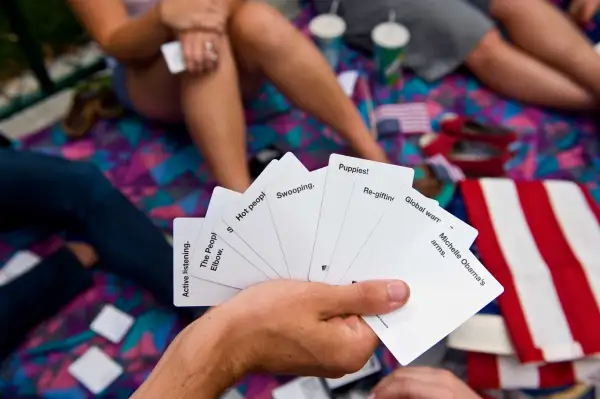Cards Against Humanity Just Gave $1,000 Each to 100 People

Cards of Humanity is taking on income inequality.
The card game had 150,000 people sign up for "Cards Against Humanity Saves America" an experiment dealing with wealth disparity. Their money was redistributed based on their responses to a survey issued upon signing up, as well as geographical census data. The majority, 140,000 of subscribers, did not receive any monetary compensation, while 10,000 subscribers received a $15 refund. The remaining 100 people — described as the least economically fortunate — received $1,000.
"Today, eight men own the same amount of wealth as the poorest half of humanity (almost 4 billion people). Most Americans can't come up with $400 in an emergency, and one in five American households have zero or negative wealth," Cards Against Humanity explains on its website. "Our lawyers advised against our first choice — a campaign to eat all the rich people and live in their houses — so we settled for something more achievable."
The game also included testimonials from 13 recipients of the money, who seemed floored by the gift and overcome with gratitude. One recipient said she now had money to buy her family Christmas gifts; another said it would help her significantly with her student loans. Another recipient said she would be able to see her son more because she could pay for his flight from Las Vegas to Washington.
"Giving 100 people $1,000 doesn’t fix wealth inequality," the game's website reads. "But we think these stories are a clear demonstration of how much $1,000 means to someone struggling to pay for basic necessities."